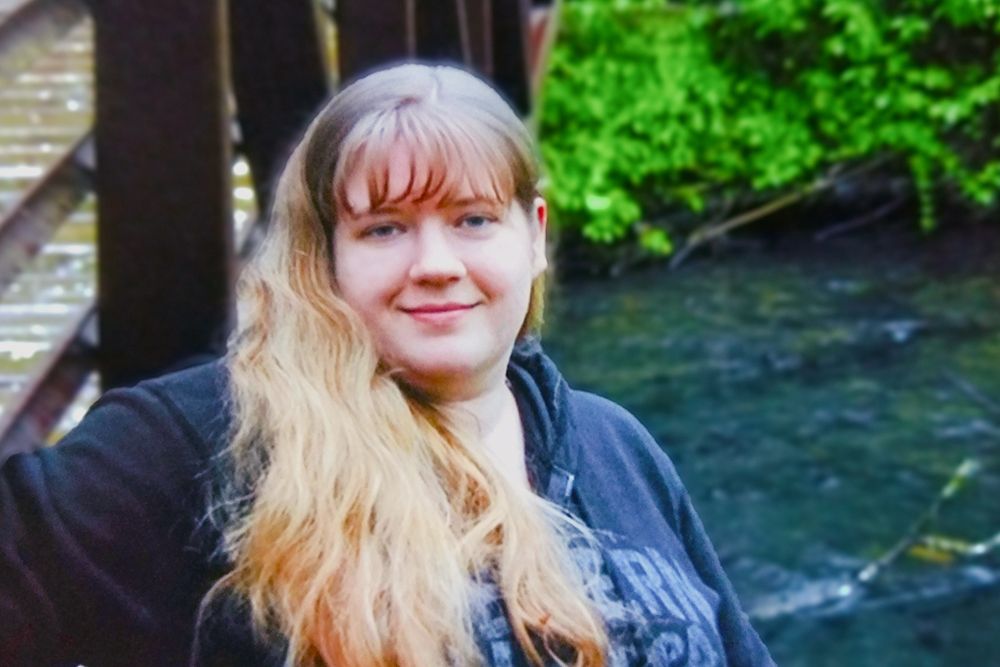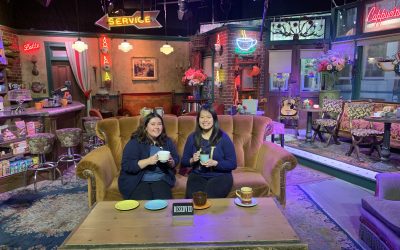Student spotlight on Brie Wallace
Brie Wallace is graduating this spring with degrees in Community Health Education and Psychology and a minor in Human Biology. In the fall, Brie will be starting the Applied Psychological Science Master’s Program at Pacific University. “I don’t know what I want to do ultimately, but I do know that I want to work with people one-on-one.”
Brie is particularly drawn to the area of women’s and girl’s health. “I volunteered with the Girl Scouts for 10 years and loved seeing the impact of a supportive environment on girls as they grow up.”

Brie is a non-traditional student in many ways.
For one, she’s a few years older than many of her peers. After graduating high school, Brie travelled around the country for 4 years before starting college. “I chose WOU because I really liked the campus. I’m from a small town so this place felt like home.”
Brie is also the first person in her family to attend college. “It’s a really big deal for my family since my mom had to drop out of college to have me.” She goes on to describe how this is one of the reasons she is passionate about women’s health and reproductive rights. “My mom was a teen mom and her mom was a teen mom, but imagine what else they could have done.”
To minimize student loan debt, Brie works 4 jobs. She is a work-study aide in the registrar’s office, a support specialist at Columbia Community Mental Health, an employee at a local temp agency, and a retail worker at a formal wear shop. This is in addition to her community health internship at the Dallas Retirement Village, which, according to Brie, “has been a really steep learning curve since it’s not the population I’m used to studying.”
Brie is appreciative for the experiences that have helped prepare her for grad school and her career. Working at Columbia Community Mental Health has helped her practice counseling skills.
Sometimes I have to be tough with them and ask point-blank, ‘are you lying to me?’ It’s not always easy, but it’s rewarding. Plus, it’s a little like working with young people because even though they might be 50, if they started using at 18, then that’s where they are developmentally.
The classes Brie remembers most fondly include professor Tatum’s Health 412 class (“I still use ‘change your perception’ as a way to deal with problems”) and Dr. Vala-Haynes’s Research Methods class (“I learned so much about qualitative and quantitative research that really impressed my psych professors and classmates.”)
Brie is also thankful for the support of the HEXS professors. In particular, she talks about how she really clicked with “Dr. V.H” (Vala-Haynes). “Dr. V.H. helped me a ton with my grad school application and thinking through my plans for the future. She doesn’t take any of my BS and I think that is good for me.”
To wrap up, Brie has the following advice for students:
- Meet with an advisor ASAP.
- Choose a good advisor and ask a lot of questions.
- Get comfortable with degree works.
- If you are unsure about your major, take LACCs (but don’t take classes you don’t need).
- Go to the library and get to know your reference librarian.
- Make friends with your classmates because they will be your cohort for the next 2+ years.
- Get a minor even though it’s not required any more.
- Call your parents at least once per week (especially if they’re helping you pay for school).


